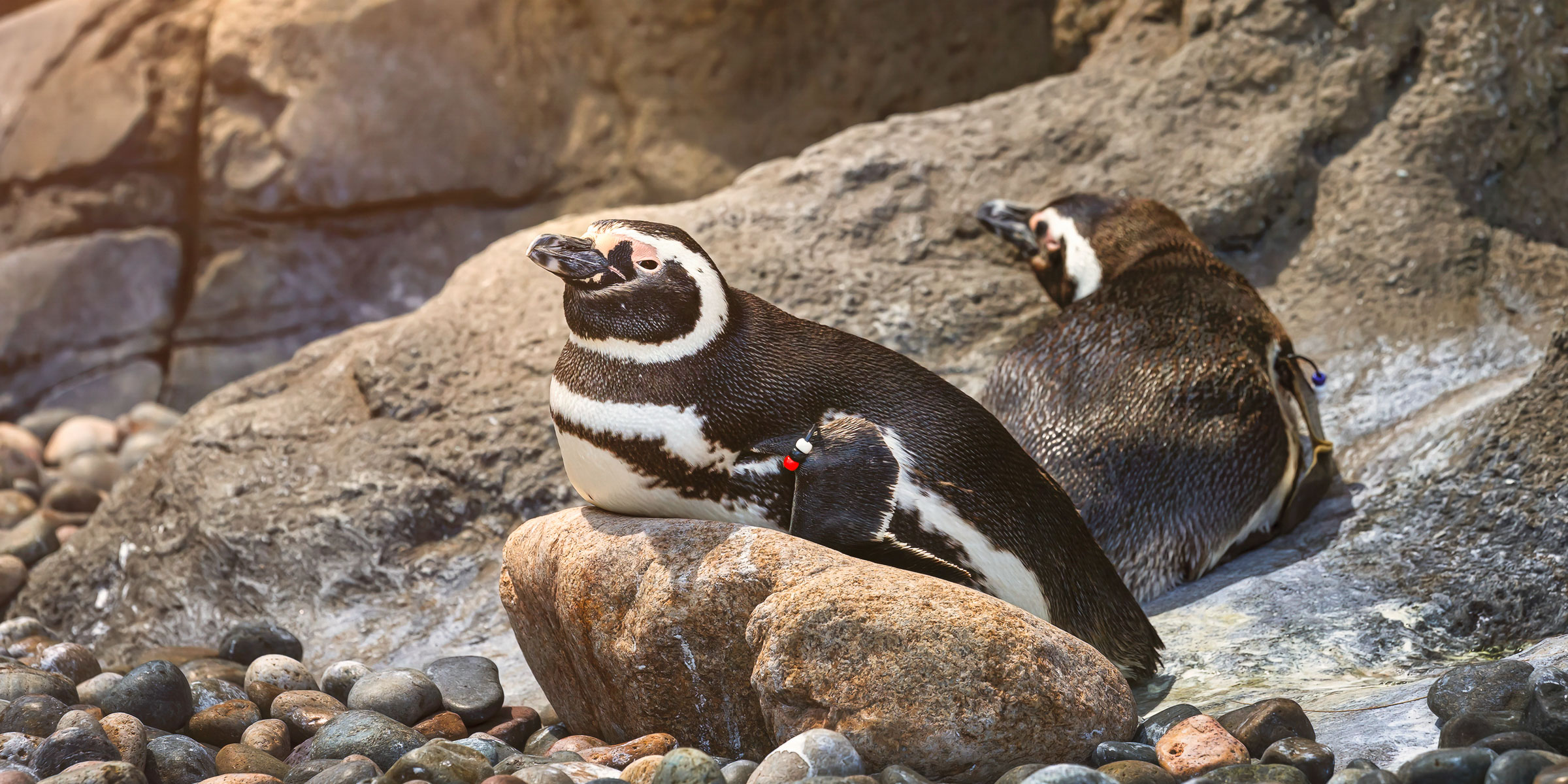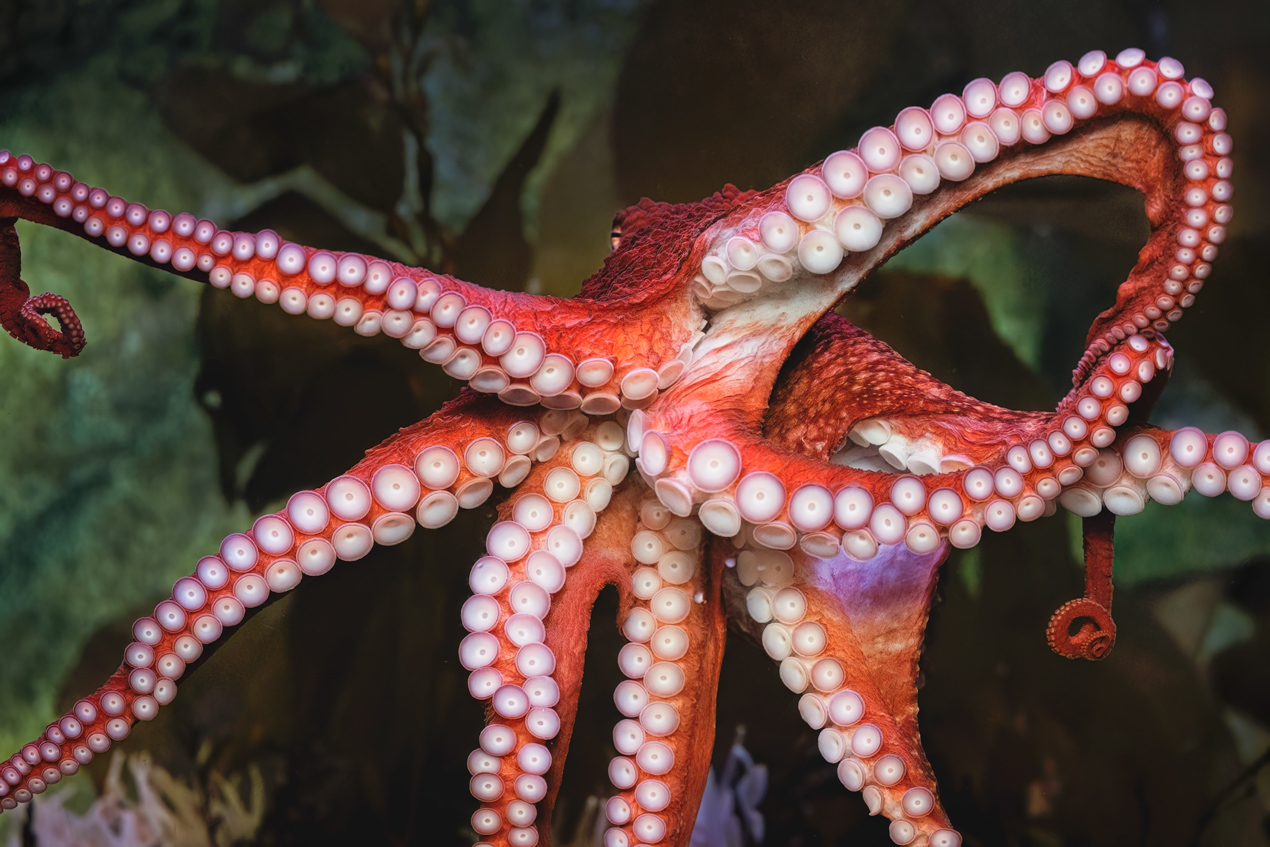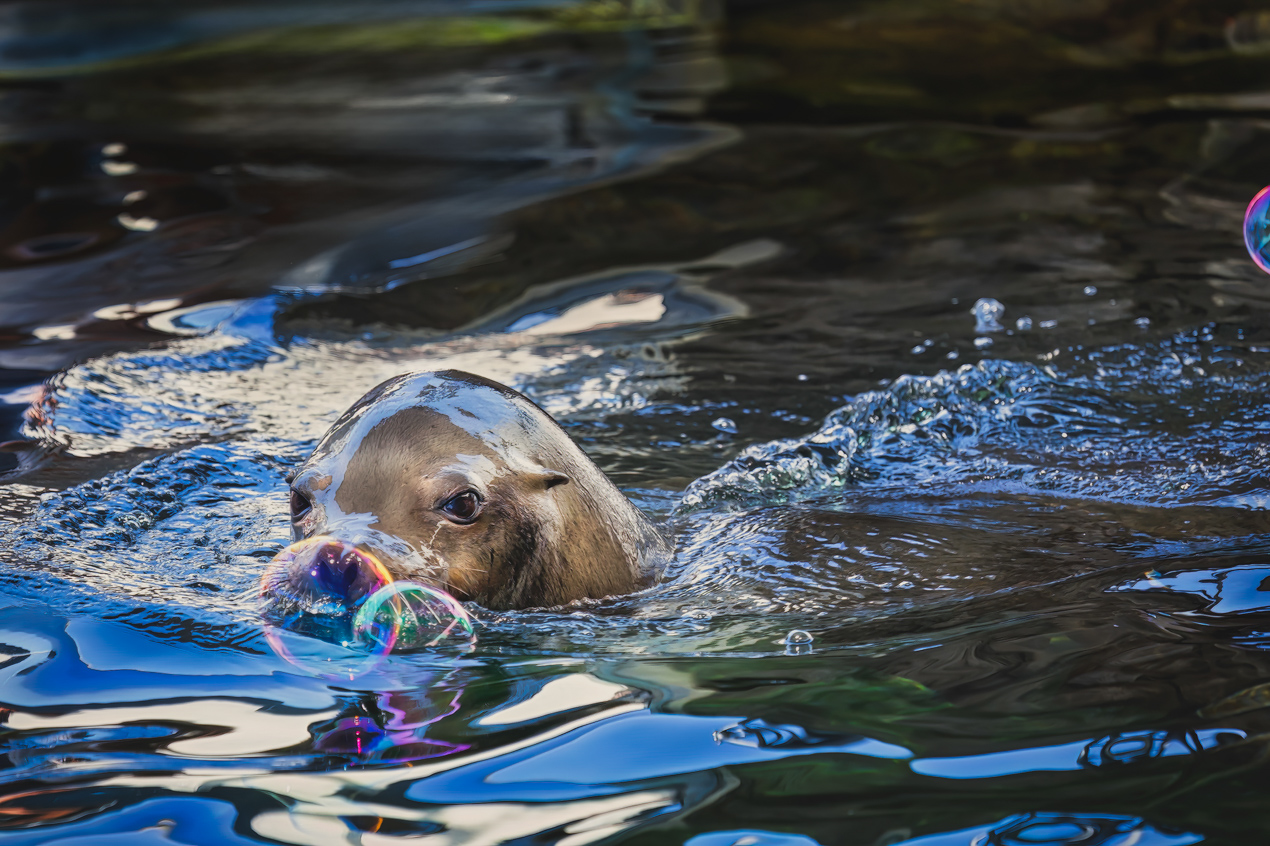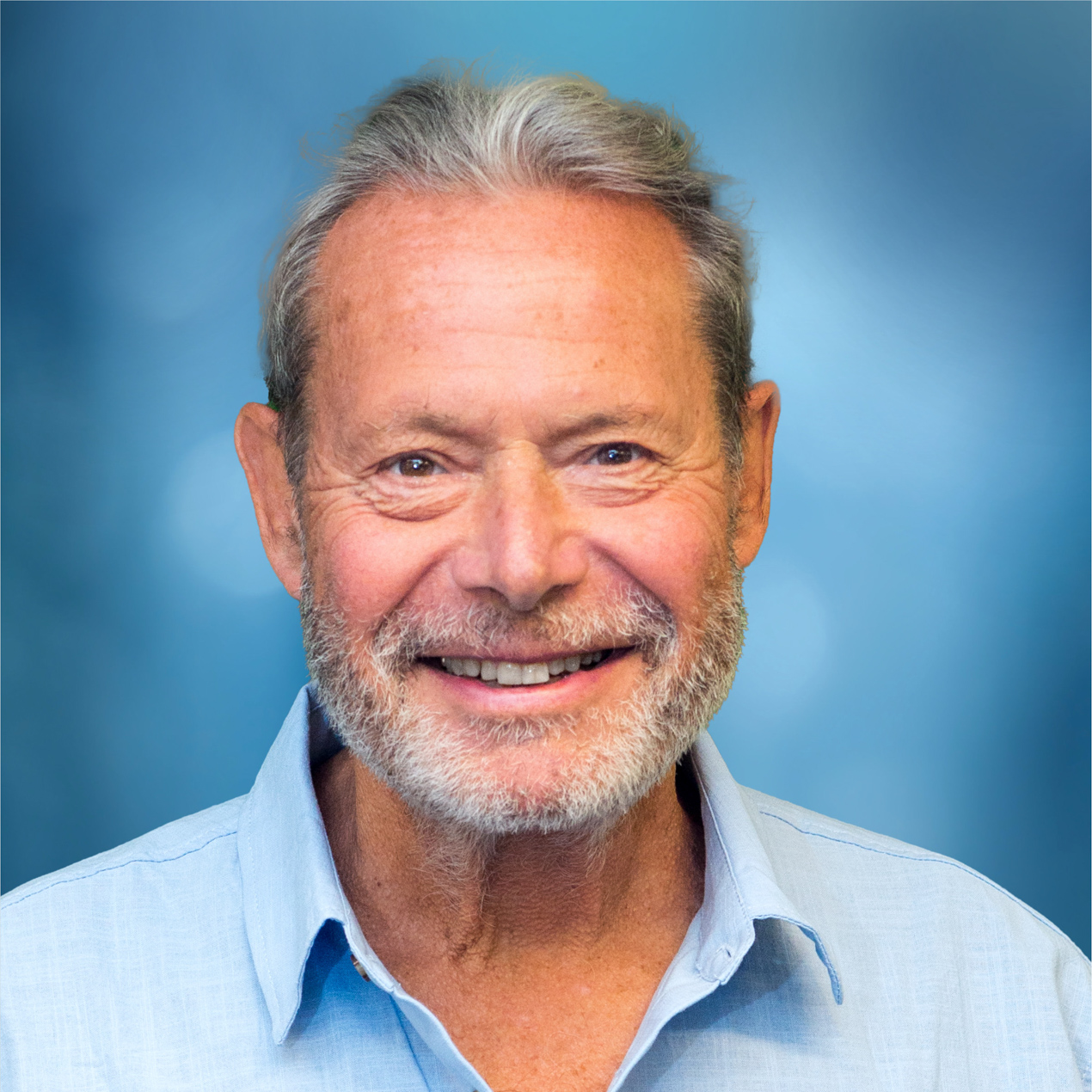
Letter From The CEO
Animal Care, Connection, and Beyond
Our CEO encourages us to connect deeply with animals as a way to fuel our heart and creativity.
Have you ever talked out loud to your cat? Or your dog? You might even have muttered stuff like, “oh you are so cute,” “you are such a bad boy,” or even “I love you.” Do not be embarrassed. When we do this, it is not because we are expecting to have an intellectual conversation. Rather, we do so because we are connected to our animals and have a sense of their inner lives. And if you have talked to your dog or cat, you also probably are aware of when your pets are “sad.” Of course, words like “sad” or any human vocabulary is inadequate when it comes to capturing the thoughts, emotions, feelings, and moods of animals. Science has only just begun to appreciate the full possibility of sentience and emotions in animals.
I bring this up because the theme of this Pacific Currents issue is animal care, and it is not as clinical as it sounds. Of course, animal care entails a healthy diet, regular medical check-ups, appropriate vitamins, and medicines. But it also entails really knowing the animals in your care. We have aquarists who can tell when a fish is having a bad day or when our giant Pacific octopus is in the mood to play.

Animal care is not a box we check or some official best-practice manifesto. It is who we are.
We do not just care for our animals. We are totally tuned into their behavior, how they are acting, and what they may need. When we think about a new exhibit, we ask ourselves, “How can we make the habitats as natural as possible? Or how can we accommodate the needs for play and choice? In certain cases, we might decide NOT to have animals for which we feel we could not provide an adequate habitat and quality of life. Animal care is about a relationship between humans and animals with never-ending learning about animal needs. We are in the midst of an exciting time in science when researchers are discovering surprising dimensions of animal emotions and communication.
Ingenious experiments with honeybee foraging behavior have led biologists to suggest honeybees manifest depression after experiencing stress. Experiments have shown that the boldness or shyness of fish can be influenced by their life experiences. Meanwhile, many of you probably read about the twenty-year-old orca who carried her dead calf for seventeen days on what experts termed a “tour of grief” off the coast of Washington state and British Columbia a few years ago. But all that we can do is observe behavior—and on that behavior we impose our preconceived notions.
In closing, I want to mention an orca behavior that has been in the news a lot recently and that reminds us of how much we have to learn about wild animals. Over 673 boats have been rammed by one pod of orcas off the coast of Spain—with seven boats actually sunk by the encounters. The internet has been flooded with stories of an “angry ocean” and orcas getting revenge on humans because of our damage to oceans. Meanwhile, several orca experts counter that these incidents should not be called attacks because they are not attacking; they are playing with the boats. The behavior is indisputable—what is going on in the orca’s mind when ramming the boats remains a mystery.

The bottom line is this: when we take the time to connect with and wonder about what is going on in the brains of animals, we are uplifted.
We are less self-absorbed and more aware of something beyond the grinding stresses of modern life. Come to the Aquarium, select your favorite animal, and observe them—ask yourself why they are doing what they are doing? Try to imagine what they perceive and sense in the environment. This might seem like a silly exercise. Trust me. It is not. The act of truly trying to understand how another species sees and senses the environment will liberate you from modernity and fuel your heart and creativity. It might even give you practice at putting yourself in the shoes of other humans.

Peter Kareiva
Dr. Peter Kareiva joined the Aquarium of Pacific in August 2020. He holds a B.A. in zoology, M.S. in environmental biology, and Ph.D. in ecology and evolutionary biology. He is committed to science that engages the public and believes that connecting to nature is the one thing that can overcome the deep political and social divides that plague the nation today.